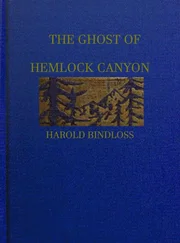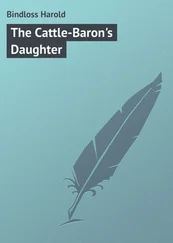Harold Bindloss - Johnstone of the Border
Здесь есть возможность читать онлайн «Harold Bindloss - Johnstone of the Border» — ознакомительный отрывок электронной книги совершенно бесплатно, а после прочтения отрывка купить полную версию. В некоторых случаях можно слушать аудио, скачать через торрент в формате fb2 и присутствует краткое содержание. Жанр: foreign_prose, на английском языке. Описание произведения, (предисловие) а так же отзывы посетителей доступны на портале библиотеки ЛибКат.
- Название:Johnstone of the Border
- Автор:
- Жанр:
- Год:неизвестен
- ISBN:нет данных
- Рейтинг книги:4 / 5. Голосов: 1
-
Избранное:Добавить в избранное
- Отзывы:
-
Ваша оценка:
- 80
- 1
- 2
- 3
- 4
- 5
Johnstone of the Border: краткое содержание, описание и аннотация
Предлагаем к чтению аннотацию, описание, краткое содержание или предисловие (зависит от того, что написал сам автор книги «Johnstone of the Border»). Если вы не нашли необходимую информацию о книге — напишите в комментариях, мы постараемся отыскать её.
Johnstone of the Border — читать онлайн ознакомительный отрывок
Ниже представлен текст книги, разбитый по страницам. Система сохранения места последней прочитанной страницы, позволяет с удобством читать онлайн бесплатно книгу «Johnstone of the Border», без необходимости каждый раз заново искать на чём Вы остановились. Поставьте закладку, и сможете в любой момент перейти на страницу, на которой закончили чтение.
Интервал:
Закладка:
Bindloss Harold
Johnstone of the Border
CHAPTER I
THE SUMMONS
Sable Lake shone like a mirror among the ragged pines, as it ran back between the rocks, smooth as oil except where a puff of wind streaked its flashing surface with faint blue wrinkles. Behind it the lonely woods rolled on, south to Lake Superior and north to Hudson Bay. At one place a new transcontinental railroad cut its way through the forest; hammers rang and noisy gravel plows emptied the ballast cars along the half-graded track; but these sounds of human activity were quickly lost and in a mile or two only the splash of water and the elfin sighing in the pine-tops broke the deep silence of the woods. This belt of tangled forest, where the trees are stunted and the soil is sterile, offers no attraction to homesteader or lumberman. In consequence, it has lain desolate since the half-breed voyageurs , who crossed it with canoe and dog-team, abandoned the northwest trail when the Canadian Pacific locomotives began to pant through the rock-cuts by Lake Superior.
The solitude itself had drawn Andrew Johnstone into the quiet bush. The lone trail had a charm for him. He knew the empty spaces of Canada; for his inaptitude for an idle life had led him on adventurous journeys through many leagues of its trackless forest. He was of the type that preferred some degree of hardship to conventional comfort. His one ambition had been to be a soldier; it was the career which from early boyhood he had chosen. He had entered Woolwich as a prize cadet, and had left it with honors; but a few weeks later he had met with an accident on a mountain crag, and his military career was suddenly closed. The surgeons did what they could; but it soon was obvious that Andrew never again would be able to take his place in the British Army. He was not crippled; he could still walk well; but he limped slightly and his injured knee gave him trouble sometimes.
He sat alone now, on a rock that jutted out into the lake. The thick branches of a spruce sagged above him and furnished a welcome shadow, for it was a close, hot day. A few feet behind him a gray trout lay in the frying-pan beside a log hearth; and beyond that stood a small weather-beaten tent, with flecks of bright sunlight filtering through the trees and spreading over it in fantastic shapes.
Andrew lighted his pipe and looked about him in languid content. The pines that came down to the lake's edge were small and ragged; some had been blackened by fire and some leaned drunkenly, but their resinous sweetness hung about the camp. In the shadow, the reflection of worn rock and rigid branch floated on the crystal water; but the reflections quivered, and there was a soft splash upon the pebbles near Andrew's feet. He heard it with reminiscent satisfaction and a touch of longing. It reminded him of the swirl of the salt tide along the Solway shore; and his thoughts went back to the Old Country he had left two years before.
He wondered what Elsie and Dick were doing at home at the old house in Annandale. He called Appleyard home because he loved it, better perhaps than Dick did, although the place did not belong to him. When he was left an orphan, Dick's father had brought him up with stern kindness, and he had afterward spent a month or two at Appleyard whenever it was possible. Indeed, in the old man's last illness he had promised that, so far as things permitted, he would look after his somewhat flighty cousin. Andrew remembered with a twinge that he had not done much to keep his promise; but, after all, there seemed no reason to believe that Dick needed him.
Then he thought of little Elsie, as he had called her, though she must be grown up now. He was much the elder, but they had always been good friends. No doubt they would try to marry her to Dick. Andrew was fond of Dick, but he did not think him good enough for Elsie.
For nearly an hour he sat on the rock, lounging back against an outcropping boulder, thinking of Appleyard and little Elsie. Then his thoughts were interrupted by a sound near the tent – some animal scampering past – and he stood up and looked out across the lake. His pose, easy and virile, showed a wiry figure of medium height; and the strong sunshine touched his brown face. It was not a face that attracted attention, but the eyes were gravely good-humored and the mouth was firm.
Andrew was watching for the gleam of a varnished hull. Whitney, his American partner, had gone to the railroad for provisions three days previously and should have returned. The canoe he had taken had been built in Toronto, especially for them. Andrew would have been satisfied with an Indian birch-bark; but Whitney not only was a keen sport but he had enough money to afford the best of everything.
At last something twinkled far up the lake, and Andrew's keen eyes distinguished a small dark speck amidst the play of light. He knew that it was Whitney; for only a canoe from which the varnish had not worn off would so catch the sunshine. When the craft had grown into shape, Andrew sat down again and watched her draw nearer with quiet approval. He liked to see things done well and there was a rhythmic precision in Whitney's movements that suggested well-directed power. The paddle flashed at exact intervals, the lithe form behind it bent with a graceful swing, and a curl of foam broke away from the gliding hull. Modern as she was, the canoe did not jar upon the primitive austerity of the wilds. Andrew felt this, though he could not have put it into words, for there was something innately primitive in him.
He sprang from a rugged stock, for he was a descendant of the Annandale Johnstones, whose crest was significantly the flying spur. Appleyard stood on the edge of the bleak moorlands that drop down to the western marshes of the Scottish border, and he knew every lonely rise and boggy flat that his mosstrooper ancestors had ridden on moonless nights. It is possible that in his youthful rambles across the high, wind-swept waste, he had acquired something that linked him to the past. In later times, his people had made some mark as soldiers and explorers, but for the past two generations the head of the house had been a quiet country laird.
Whitney drew near and in a few minutes ran the canoe upon the shingle and stood smiling at Andrew when he had pulled her up. He was young and athletic, with brown hair and eyes, brown skin, a rather thin face, and an alert, half-humorous air. His clothes had been specially designed for hunting trips by a fashionable New York tailor, but they now looked much the worse for use in the wilds.
"I've got the grub and brought our mail," he said, throwing Andrew a packet. "Here's your lot; you can wade through it while I fix supper."
"I'd have had things ready," Andrew replied; "but I was stuck for flour and pork. You've covered some ground to-day."
"Some," laughed Whitney. "It was pretty fierce clambering over the portages with the canoe on my head, but I made much better time than I could have done when I struck the woods two months ago. Looks as if the harder you have to work, the stronger you get. Nature's way of fixing things. But I'm not tired; so I'll fix supper while you read your news."
Andrew opened a letter in a girlish hand, and while he read it, lingering over the words, his thoughts went back with longing to Appleyard on the Solway shore. He pictured the low house, built of Scottish granite and beaten by the winds; the red moorland rolling north in waves; and the flash of wet sands in the distance edged with white surf by the savage tides. It was an artless letter, treating of loved, homely things, but it showed sweetness of temperament and, Andrew thought, half-concealed uneasiness. The reason for this became obvious when he read the postscript:
"I am anxious about Dick. He is not very strong, you know, and I wish that you were here."
Читать дальшеИнтервал:
Закладка:
Похожие книги на «Johnstone of the Border»
Представляем Вашему вниманию похожие книги на «Johnstone of the Border» списком для выбора. Мы отобрали схожую по названию и смыслу литературу в надежде предоставить читателям больше вариантов отыскать новые, интересные, ещё непрочитанные произведения.
Обсуждение, отзывы о книге «Johnstone of the Border» и просто собственные мнения читателей. Оставьте ваши комментарии, напишите, что Вы думаете о произведении, его смысле или главных героях. Укажите что конкретно понравилось, а что нет, и почему Вы так считаете.












